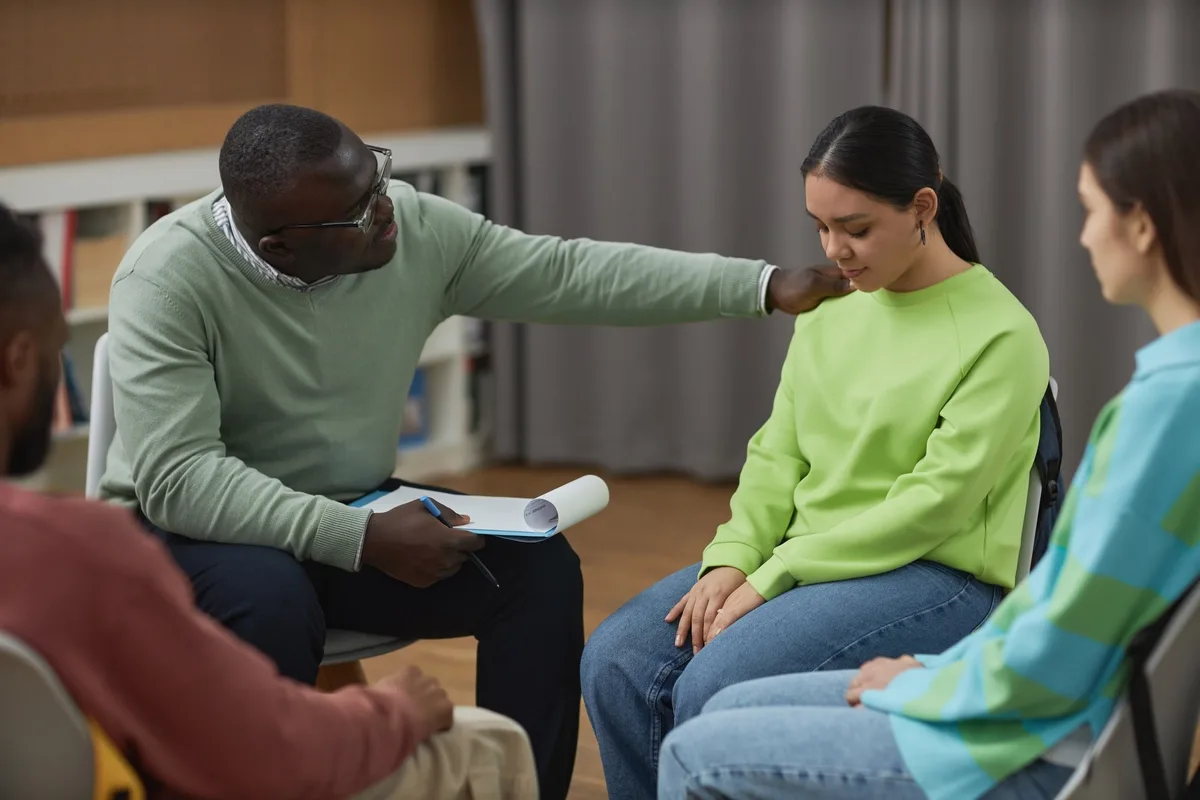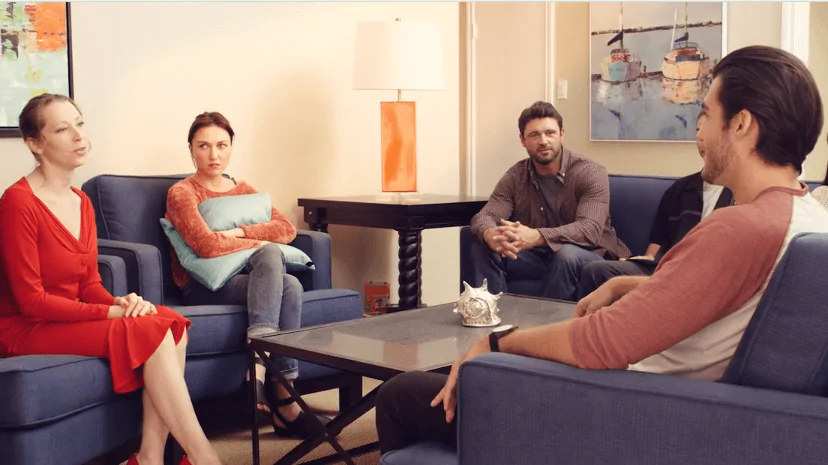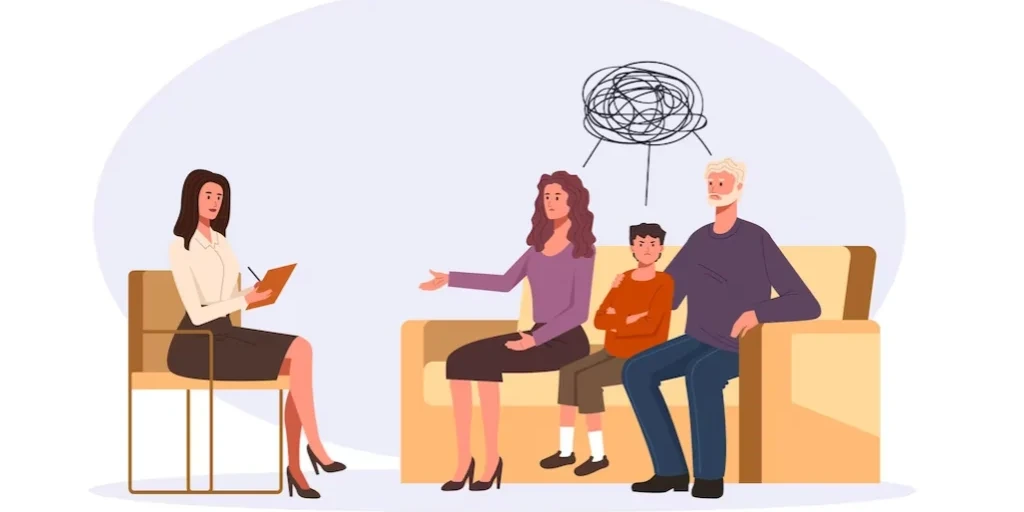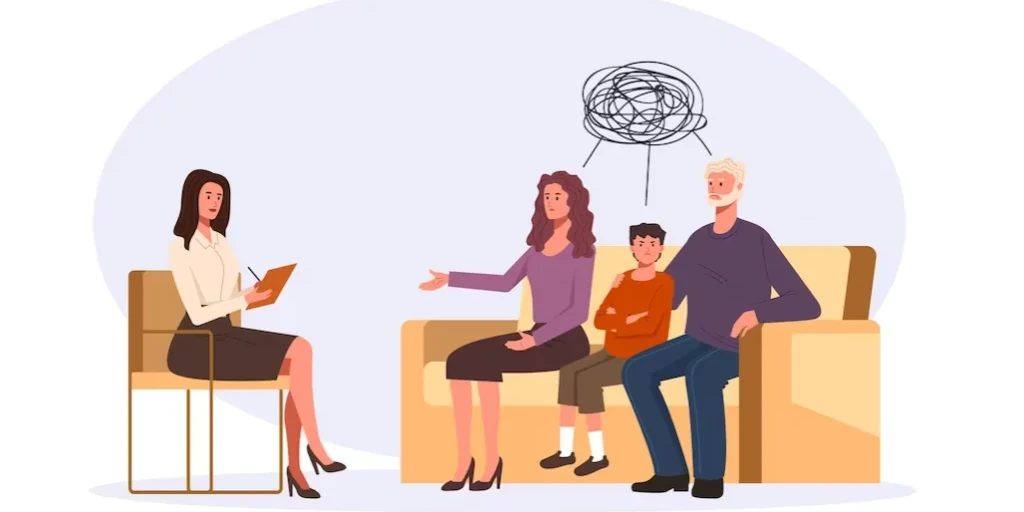24/7 Helpline:
(866) 899-221924/7 Helpline:
(866) 899-2219
Learn more about OCD Treatment centers in Evergreen
OCD Treatment in Other Cities

Other Insurance Options

Humana

Sutter

CareFirst

Holman Group

Molina Healthcare

Absolute Total Care

MHNNet Behavioral Health

UMR

Health Net

State Farm

Coventry Health Care

Optima

Health Choice

Magellan Health

Oxford
Beacon

Access to Recovery (ATR) Voucher

Multiplan

Magellan

Covered California





Jefferson Center for Mental Health
Jefferson Center for Mental Health is a private rehab located in Evergreen, Colorado. Jefferson Cent...




Dove Counseling
Dove Counseling is a private rehab located in Golden, Colorado. Dove Counseling specializes in the t...

West Pines Behavioral Health
West Pines Behavioral Health is a behavioral health and alcohol and drug rehab center in Wheat Ridge...

Choices in Living Counseling – Wheat Ridge Office
We are an outpatient clinic with locations in Wheat Ridge, Denver, and Federal Heights Colorado. We ...

Jefferson Center for Mental Health – Wadsworth
Jefferson Center for Mental Health–Wadsworth, in Arvada, Colorado, provides outpatient mental and be...

Jefferson Center for Mental Health – Outpatient
Jefferson Center for Mental Health – Outpatient is a private rehab located in Wheat Ridge, Colorado....

Primary Purpose Family Recovery Center
Primary Purpose Family Recovery Center offers outpatient treatment for individuals and families that...

ARTS – Westside Center for Change
ARTS - Westside Center for Change is located in Arvada, Colorado. ARTS - Westside Center for Change ...

Creative Treatment Options – Substance Abuse
Creative Treatment Options is a private rehab located in Arvada, CO. Creative Treatment Options spec...

Psychological Services
Psychological Services offers outpatient treatment for individuals with alcohol and/or substance add...































































































BEST – Beyond Education Supportive Treatment
Beyond Education Supportive Treatment (BEST) is a Level II Treatment Agency that provides substance ...

Serenity Education and Therapy
Serenity Education and Therapy is a Colorado Licensed treatment center for people with alcohol or dr...

Action Counseling
Action Counseling is a private rehab located in Arvada, Colorado. Action Counseling specializes in t...

Arvada Counseling Center
Arvada Counseling Center is a private rehab located in Arvada, Colorado. Arvada Counseling Center sp...

Jefferson Center for Mental Health – Union Square
Jefferson Center for Mental Health – Union Square is a private rehab located in Wheat Ridge, Colorad...

Center for Change
Center for Change is a private rehab located in Wheat Ridge, Colorado. Center for Change specializes...

Genesis Counseling
Genesis Counseling provides outpatient mental health and addiction recovery services for youth and a...

Choices in Living Counseling – Golden Office
Choices in Living Counseling - Golden Office is a rehab facility located in Golden, CO. Choices in L...

North Star Counseling
North Star Counseling is a private rehab located in Arvada, Colorado. North Star Counseling speciali...

Inspirations DA
Inspirations D/A is an outpatient rehab located in Arvada, CO. Inspirations D/A specializes in the t...

Odyssey Counseling
Odyssey Counseling is a private rehab located in Wheat Ridge, Colorado. Odyssey Counseling specializ...

Evilsizer Foothills Counseling
Evilsizer Foothills Counseling is a private rehab located in Arvada, Colorado. Evilsizer Foothills C...

Arapahoe House – The Wright Center
Arapahoe House – The Wright Center is a private rehab located in Wheat Ridge, Colorado. Arapahoe Hou...

Astraea Presentations
Astraea Presentations is a private rehab located in Arvada, Colorado. Astraea Presentations speciali...

Denver Family Therapy Center – Adolescent Substance Abuse
Denver Family Therapy Center – Adolescent Substance Abuse is a private rehab located in Wheat Ridge,...

Adolescent and Family Institute of Colorado
Adolescent and Family Institute of Colorado is a private rehab located in Wheat Ridge, Colorado. Ado...

Denver Neuropsychological Associates
Denver Neuropsychological Associates is a private rehab located in Wheat Ridge, Colorado. Denver Neu...

Empowerment Counseling Services
Empowerment Counseling Services is a private rehab located in Arvada, Colorado. Empowerment Counseli...

1st Alliance Treatment Services
1st Alliance Treatment Services is a private rehab located in Golden, Colorado. 1st Alliance Treatme...





















































































































